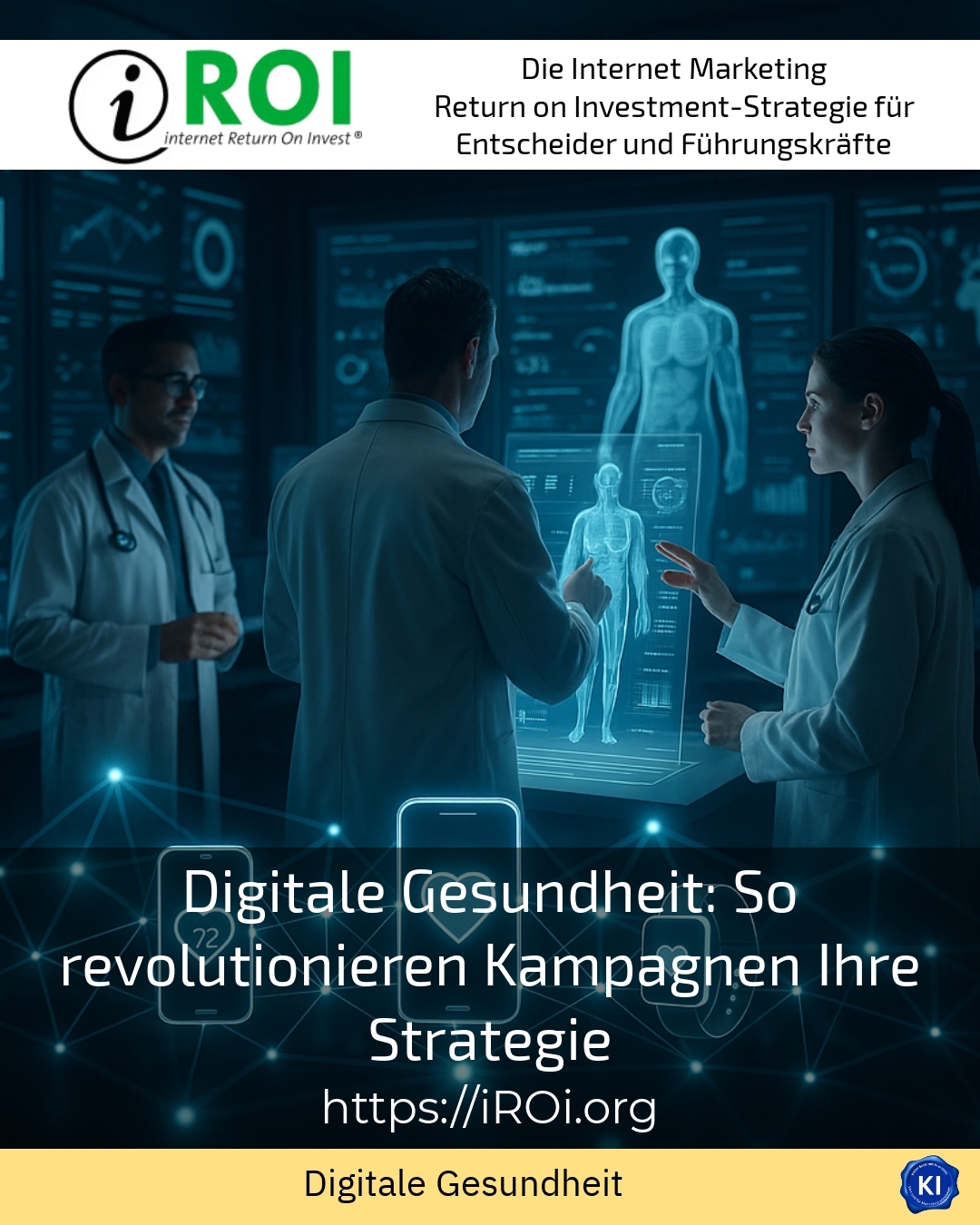Digital health is the focus of current debates on the modernisation of our entire healthcare system. Electronic patient records, mobile apps, telemedicine and artificial intelligence are already having a lasting impact on collaboration between doctors, carers and patients. Those who see digitalisation and networking as part of their own strategy can develop innovative solutions for old challenges and tap into new target groups at the same time.
Digital health: opportunities and challenges at a glance
The integration of digital technologies promises better access to prevention, diagnosis, treatment and aftercare. At the same time, new questions arise regarding data security, data protection and user-friendliness. Many organisations report that they see the development of digital skills, a clear strategy and a suitable infrastructure as key success factors when introducing digital health measures [3].
One example: In rural areas, telemedicine services enable medical consultations without long journeys. Mobile self-tests and wearables help to monitor chronic illnesses more reliably. At the same time, digital platforms support communication between patients and specialists, thus ensuring greater transparency and participation.
The acceptance and use of digital health applications is increasing as long as the benefits can be experienced directly. Many clients specifically ask for solutions that make everyday life easier and require as little familiarisation as possible. Small and medium-sized facilities in particular are often faced with the challenge of selecting suitable services and dovetailing them in a meaningful way.
How to successfully implement digital health in your organisation
The best way to get started with digital transformation is not to focus solely on technology, but also to analyse the needs of your target groups and internal processes. Three specific tips from the field:
- Start with a clear vision: Develop a vision statement together with all stakeholders that describes the potential and limits of the digital health strategy.
- Build up digital skills: training, workshops and internal communication help to reduce uncertainty and make the added value visible.
- Select pragmatic pilot projects: Test individual solutions such as electronic patient files, digital medication plans or teleconsultations on a small scale before introducing them across the board.
Many facilities are already benefiting from simple but effective digitalisation projects on a day-to-day basis. For example, one clinic reports that it was able to significantly reduce waiting times after introducing online consultation hours. A care home uses smart sensors to prevent falls, thereby saving staff costs and increasing the safety of residents.
Digital health in marketing: How campaigns drive your strategy forward
Digital health campaigns make it possible to publicise new technologies at a low threshold and build trust. They draw attention to new services, promote the use of apps and online platforms and motivate people to actively participate in their own health process.
Many target groups are specifically looking for digital applications that support their health. With a suitable campaign, you can show how digital solutions make everyday life easier without losing personalised care. Use different channels to spread your messages: social media, newsletters, webinars or information leaflets in waiting rooms.
A practical example: One clinic launched a campaign in which patients received digital support after an operation. They received reminders, exercises and direct contact with nursing staff via an app. The feedback was consistently positive because care became more personalised and flexible.
BEST PRACTICE with one customer (name hidden due to NDA contract) and then the example with at least 50 words.
A regional network for digital health services wanted to tap into new target groups and increase the use of digital services. In collaboration with iROI-Coaching, a multi-stage campaign was developed to educate, inform and motivate. The campaign relied on a personalised approach, informative videos and a free video consultation. The result: the use of digital services increased by 35 per cent within a year and confidence in the new technology grew significantly.
Future prospects: What does digital health mean for you?
The possibilities of digital healthcare are developing rapidly. AI-controlled diagnostics, personalised prevention apps, robot-assisted operations and the analysis of large amounts of health data - all of these will become even more interlinked in the future. Those who create the right framework today will benefit from greater efficiency, higher quality and a wider reach for their services [4][5].
It should not be forgotten that successful implementation always depends on three factors: a clear strategy, a suitable infrastructure and the active involvement of all those involved. iROI-Coaching supports you in this process by providing impulses, sharing experiences from other projects and developing individual solutions together with you.
My analysis
Digital health is not a fashion trend, but a key building block for attractive, crisis-proof healthcare structures. The right communication, tailor-made campaigns and careful planning help to raise awareness of digital innovations and establish them sustainably. iROI coaching supports organisations that want to use digital health strategically - from the initial idea to successful implementation.
Further links from the text above:
Digitalisation in the healthcare sector | BMG [1]
Digital health: fundamental transformation and ... | WHO [2]
Digital Healthcare 2033 - Fraunhofer IESE [3]
Digital health and care - European Commission [4]
For more information and if you have any questions, please contact Contact us or read more blog posts on the topic internet Return on Investment - Marketing here.















